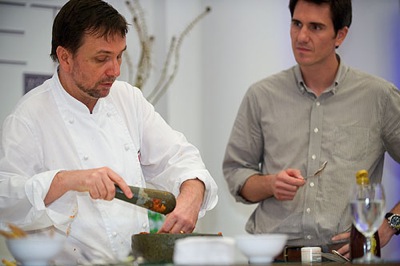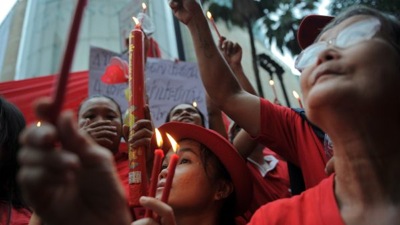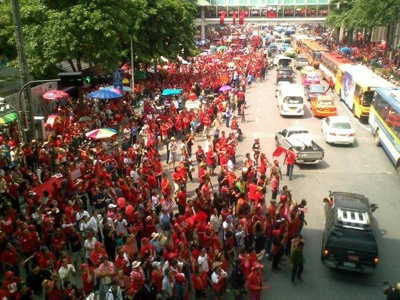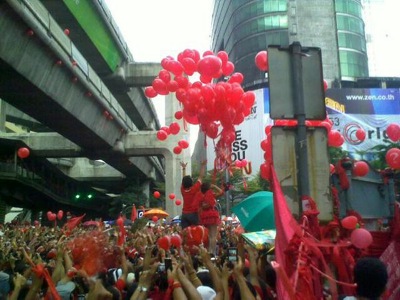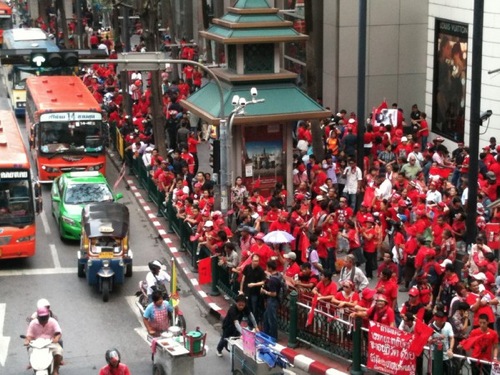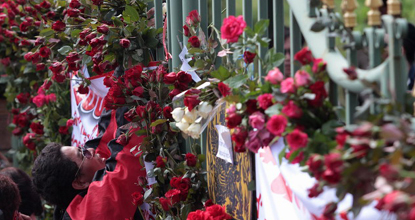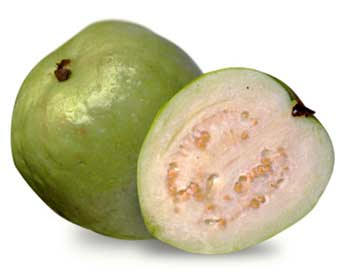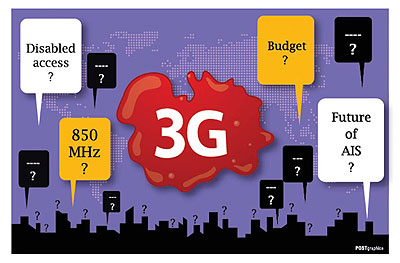
Note: This is cross-posted to Siam Voices, a new group-run Thailand blog at Asian Correspondent.
Arguments over stipulations in the Thai constitution. Court rulings. Frustrated investors. Beguiled local people.
Sound familiar?
No, this isn’t the Map Ta Phut industrial estate case. It’s a different snafu entirely — but one with certain similarities.
This high-tech imbroglio has to do with Thailand’s lack of a so-called 3G mobile network. In short, 3G — or third generation — technology allows cell phones to use more bandwidth. This is useful — and some would say necessary — as people increasingly use Web-capable smartphones like the iPhone and Google’s Android phone for work and play.
Most of Thailand’s Southeast Asian neighbors already have 3G capabilities, and 4G is already being used elsewhere in Asia.
But on Thurs., Thailand’s Supreme Administrative Court ruled to halt planned bidding for 3G licenses, resulting in a major setback in efforts to bring a faster mobile network to the country. The Bangkok Post has the details, and Thailand’s official MCOT news agency says:
Thailand’s Supreme Administrative Court on Thursday upheld the Central Administrative Court’s injunction to suspend distribution of the third generation (3G) wireless service, saying the National Telecommunications Commission (NTC) was not authorised to award the 3G licence.
…
The Supreme Administrative Court reasoned that the NCT’s criteria for granting 3G licences was illegal and the auction process, if continued, could cause severe damage.
It also pointed out that the 3G service which was in its first phrase could be offered to a small, limited network and that it takes at least four years to cover the whole country, so that suspending it currently will not be an obstacle to the future use of the technology.
The court ruled that the 3G auction should be held after the National Broadcasting and Telecommunications Commission (NBTC) is set up.
CAT Telecom filed a complaint against the NTC to block its 3G auction last week. The three bidders–Advanced Info Service (AIS), DTAC and True Move–have been informed of the court’s decision.
The Central Administrative Court earlier handed down an injunction to halt the 3G licence bidding process until the NBTC was established as prescribed under the 2007 Constitution, saying the NTC was not empowered to allocate the frequencies.
Got that? Indeed, the issue is complex.
As Bloomberg explains, the current impasse — like the Map Ta Phut situation — reflects, to some degree, the ongoing unintended consequences of the 2006 military coup:
Thailand’s failure to auction licenses for high-speed mobile-phone services this week may have been sealed four years ago, when the military ousted Thaksin Shinawatra from power and began drafting a new constitution.
The nation’s highest administrative court yesterday said a constitutional review is needed to decide whether regulators have authority to conduct a sale, causing phone company stocks to fall on concern revenue from new services will be delayed. Last year, shares in industrial companies slumped after a similar decision halted 76 projects approved by the government.
And:
“This just highlights the economic cost of the coup and the legacy of military rule that the country is still paying for,” said Andrew Yates, head of foreign sales at Asia Plus Securities Pcl, Thailand’s third-biggest brokerage by market capitalization. “The biggest loser is the customer.”
And finally:
“The problem is that the laws to implement the constitutional arrangements haven’t been passed,” said Alastair Henderson, a Bangkok-based partner at Herbert Smith LLP. “The broader impact is foreign investors looking at Thailand and saying these legal uncertainties make me wonder whether that’s the place I want to put my major Southeast Asian investment.”
Some estimates indicate that at this point, 3G may not be implemented in Thailand for another two years.
Ironically, Apple’s new iPhone 4 — the successor to the iPhone 3G — went on sale here in Thailand on Thursday night, and eager consumers snapped up the new gadgets.
For further reading on 3G in Thailand, there’s this Bangkok Post story from Sept., 2009; this Bangkok Pundit post that explains the situation and the players involved; and this Reuters story.
(All emphasis mine.)
(Image via the Bangkok Post.)
